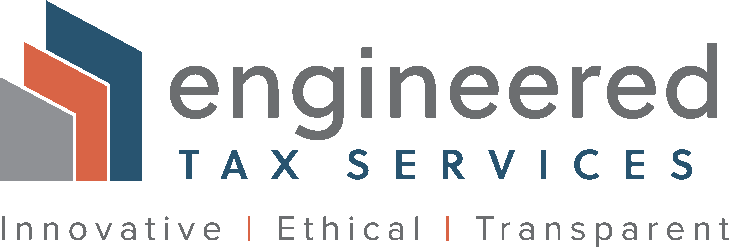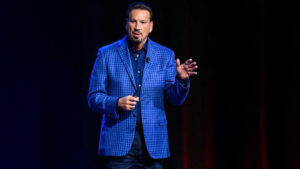There is tremendous value in construction tax planning. If you’re in the construction industry, do you know how many millions of dollars you can save if you plan ahead to take advantage of powerful tax incentives before you build?
At Engineered Tax Services, we have 20 years’ experience specializing in providing specialty tax services to the construction industry. If you consult with us at the blueprint phase before you start construction, we can prescribe guidance to ensure you qualify for energy incentives and optimize your depreciation.
We can enhance your bottom line using the following tax strategies:
How Can We Save You in Taxes?
We’ve helped quite a few clients gain tax savings in unexpected ways.
- One client planned to build a hotel with an impressive porte-cochère—a sort of massive carport for arriving guests. We advised that if the porte-cochère wasn’t physically attached to the building, it would qualify as a land improvement and would become fully deductible in year 1, rather than being depreciated over 39 years.
- When another client planned to build a hotel, we informed them that if they installed moveable walls in their conference rooms, they could depreciate the walls under bonus depreciation rules.
- A client was debating what kind of flooring to install in their office building. We advised them that the installation method can make a big difference. Permanently adhered floors, such as tile and glued-down wood, are considered permanent, while carpets and floating floors such as luxury vinyl plank are treated as personal property.
It pays to bring us in before you build. We can help you pre-qualify for energy efficiency tax credits stemming from 179D and 45L—and 179D’s new regulations make it much more challenging to qualify for. When one client proposed building a large 300-unit Las Vegas multi-family apartment building, we saw the units didn’t qualify. But we pointed out that if our client changed the bathroom exhaust fan from a standard model to a variable speed, continuously running fan for $150, they’d qualify for a $2,000-per-unit energy credit. For 300 rooms, that’s a $600,000 tax credit for a $45,000 expenditure.
A client expressed interest in building a very large apartment complex in Colorado. We realized they’d qualify for 45L tax credits if they installed ceiling fans; 45L takes into consideration tightness of construction and airflow. Because our client was still able to make the change before construction was completed, they were able to claim the entire tax credit.
What Property Components Qualify for Accelerated Depreciation?
We identify accelerated deductions by analyzing costs and documenting design and construction based on federal guidelines. These guidelines define tangible property from all stages of a construction project. We consider:
- Interior walls (wall coverings, partitions, low walls)
- Ceilings (decorative coverings, tin, wood)
- Flooring (removable, adhesive types, finishes)
- Miscellaneous finishes (chair rail, crown molding)
- Warehouse applications (driver areas, walls)
- HVAC, plumbing and electrical systems (purpose and use)
- Buildings attached assets (canopies, decks, flagpoles)
- Typical site improvements (landscape, walks)
We also analyze I.R.C. Sec. 174 embedded costs, indirect costs, and professional fees (soft costs) during the planning and design phases of a construction project, allowing for an immediate tax deduction in the year the cost is incurred.
The Nuts and Bolts of Construction Tax Planning
By taking advantage of our pre-construction tax planning services, you can obtain the maximum tax benefits associated with your construction project. We will evaluate your project to ensure that you qualify for:
- Federal incentives for energy efficiency
- Proper liability insurance coverage
- Accelerated depreciation on all applicable building components
- and more.
Backed by our construction tax planning team of architects, general contractors, engineers, and CPAs, you’ll be surprised at the substantial tax savings you’ll enjoy.




